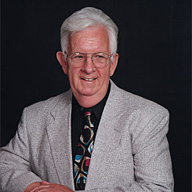 |
|
| Vol. 14 No. 12 December 20121 | Page 11 |
Dean Kelly
 “And the child Samuel ministered unto the LORD before Eli. And the word of the LORD was precious in those days; there was no open vision” (1 Samuel 3:1 KJV). There are times in the Old Testament where God is recorded as speaking often to a man, such as Moses or one of the great prophets, like Isaiah, Jeremiah, or Ezekiel. On the other hand, there were times when God did not speak directly to anyone for long periods of time. The events recorded in 1 Samuel 3 are at one of those times. The word translated “precious” is often translated “rare” (NKJV, ESV). When something good is rare, that makes it seem so much more precious. In the following verses of this chapter, inspiration records God calling to Samuel, and his consistent answer, “Here I am.” Later, in Isaiah 6:8, Isaiah is called by God: “Also I heard the voice of the Lord, saying, Whom shall I send, and who will go for us? Then said I, Here am I; send me.” Notice the reaction of both of these godly people. “Here am I.” From these concepts I would make the following observations:
“And the child Samuel ministered unto the LORD before Eli. And the word of the LORD was precious in those days; there was no open vision” (1 Samuel 3:1 KJV). There are times in the Old Testament where God is recorded as speaking often to a man, such as Moses or one of the great prophets, like Isaiah, Jeremiah, or Ezekiel. On the other hand, there were times when God did not speak directly to anyone for long periods of time. The events recorded in 1 Samuel 3 are at one of those times. The word translated “precious” is often translated “rare” (NKJV, ESV). When something good is rare, that makes it seem so much more precious. In the following verses of this chapter, inspiration records God calling to Samuel, and his consistent answer, “Here I am.” Later, in Isaiah 6:8, Isaiah is called by God: “Also I heard the voice of the Lord, saying, Whom shall I send, and who will go for us? Then said I, Here am I; send me.” Notice the reaction of both of these godly people. “Here am I.” From these concepts I would make the following observations:
First, the Word of God should never be rare anymore. God has revealed His will through the pages of the inspired Scriptures. There is no excuse anymore for the word to be “rare.” Only through our negligence will it be rare. To me, it is so sad that in the days of Josiah they had to find the book of the Lord because they had lost it. Too many in our religious world have lost the book today!
Secondly, the Word of God should be precious always. I wish that we could convince religious people, and even some of our own brethren, that the Word of God is precious, should be studied and adhered to in all of our religious actions. When the Word is held as “precious,” it will truly become our guide. I read so many notes and articles about so many of our own brethren being led off into the trappings of denominationalism, and realize that one can only do that when he or she forgets how precious the Word of God is.
In the third place, the Word of God should bring the reaction “Here am I, send me” from us. Through the Great Commission and other admonitions of the Bible, God is calling us to action. He still asks, “Whom shall I send, and who will go for us?” Way too often the response to God is “I can’t go, I am way too busy” (or some other excuse). Because men like Samuel and Isaiah held the Word of God to be precious, because they wanted to please God, because they were more concerned about His way than their own thoughts, they responded to what God said. While Samuel at first thought the voice was that of Eli, his response of “Here am I” would be a lifetime dedication.
Next, we must stand firmly with the Word of God, even when the message is hard or might anger someone. Samuel, in 1 Samuel, was instructed to give a message to Eli, his mentor and master. It was a very unpleasant message because of the evil of Eli’s sons. It was so unpleasant that Samuel was at first afraid to tell Eli, but he did what was right. We must be willing to stand with the Word of God even when others will attack, malign, ridicule and even harm us because of it.
In addition, we need to accept what God’s will is. Eli insisted on hearing what God had to say to Samuel. Samuel would have done him no favors by not telling him the truth. Eli’s response was, “It is the LORD: let him do what seemeth him good.” We must listen to God’s words, and accept His will, even when it is in conflict with our own personal preferences or “perceived needs.”
Finally, if we will look upon God’s Word as precious, we will succeed with it. The Bible sums up the success of Samuel, who always maintained the “Here am I” attitude, in these words: “And Samuel grew, and the LORD was with him, and did let none of his words fall to the ground.” What that means is that God did not let Samuel’s words go wasted. His adherence to the Word of God, and his unfailing faith, made his role as a spokesman for God a success. The fact is that you and I are all spokesmen for God. A person may never climb in a pulpit or do any other public thing, but each of us, by our lives and our words, are spokesmen for God. May we take that responsibility seriously, and with the attitude of Isaiah “Here am I, send me!” because we truly know that the word of God is precious.![]()
Royce Pendergrass
 Some trends are developing in worship services in the Lord’s church today that are aimed at pleasing those who are proposing to be worshipping and not to serve as worship to God. God didn’t leave us “in the dark” about what He expects of us, and that includes our public worship services.
Some trends are developing in worship services in the Lord’s church today that are aimed at pleasing those who are proposing to be worshipping and not to serve as worship to God. God didn’t leave us “in the dark” about what He expects of us, and that includes our public worship services.
These modern “added” trends in the Lord’s church are not very far from us. My wife and I attended a service of the Lord’s church within 25 miles of here and we had our eyes opened. Teenage girls stood at the back of the auditorium and led the public singing along with a group of young men. There was handclapping and so much disorder from the young folks that we looked up elders after the “service” was over and attempted to talk with them about it. Basically, we were told to mind our own business. These modern trends are popping up in congregations all around us.
So many seem to want to express their worship by handclapping, foot stomping, swaying and much loudness. They are expressing their emotions by their spirited display of worship. I certainly want to worship God in the proper way, that is, in the way He has directed, and I don’t find any of these things demonstrated in details of the way early Christians worshipped nor do I find them commanded or demonstrated in the New Testament at all. Those who do such things in worship seem to be doing it for show to draw attention to themselves; the focus is on them and not on God.
God doesn’t command us to be boisterous in worship or any other time. Paul said, “I exhort, first of all that supplications, prayers, intercessions and giving of thanks be made for all men; for kings and for all who are in authority, that we may lead a quiet and peaceable life in all godliness and gravity” (1 Timothy 2:1ff). He was not expressing a desire to see an outward display of godliness but to see people living godly lives in a quiet and peaceable way. In addressing the Thessalonian brethren, Paul even mentioned “how holy, justly and unblameably we behaved ourselves among you” (1 Thessalonians 2:10). Paul was reiterating that, when they went to Thessalonica to preach, their conduct was above reproach. They didn’t do things that would draw attention to themselves, but they did what demonstrated that they walked “worthy of God” (verse 12).
When I was preaching at another congregation, there was one man who never prayed until he got down on his knees. Knowing the man, I was certain he never did that as a public display, but he always strove to humble himself before God. That’s what getting down on one’s knees does! “God resists the proud but gives grace to the humble” (James 4:6).
God desires us to be humble and quiet before Him, not proud and loud. That kind of worship is inward, not outward. True worship should never cause one to do things that would bring a public display of attention to oneself but do the things that will glorify God. The scribes and Pharisees had a problem with this, and Jesus said “all their works they do to be seen of men; they make their phylacteries broad and enlarge the borders of their garments and love the uppermost rooms at feasts and the chief seats in the synagogues and greetings in the markets and to be called of men, Rabbi” (Matthew 23:5ff). Jesus condemned them for doing all these things to draw attention to themselves, and He condemns us for that too!
Paul said, “If I yet pleased men, I would not be the servant of Christ” (Galatians 1:10). He continued by saying, “We speak, not as pleases men, but God Who tries our hearts” (1 Thessalonians 2:4). We must strive to please God with our lives and our worship, rather than strive to please ourselves or any human being!![]()